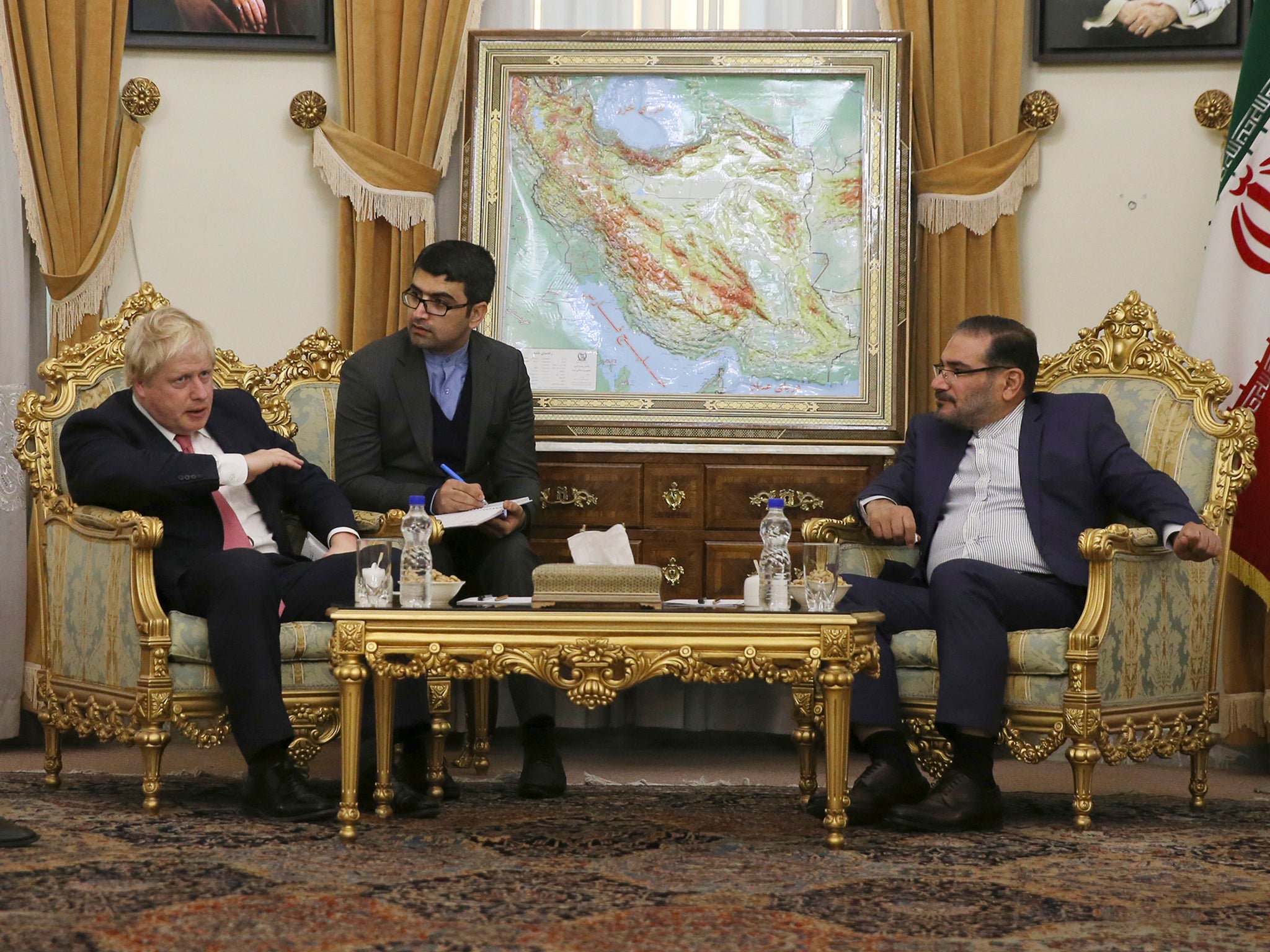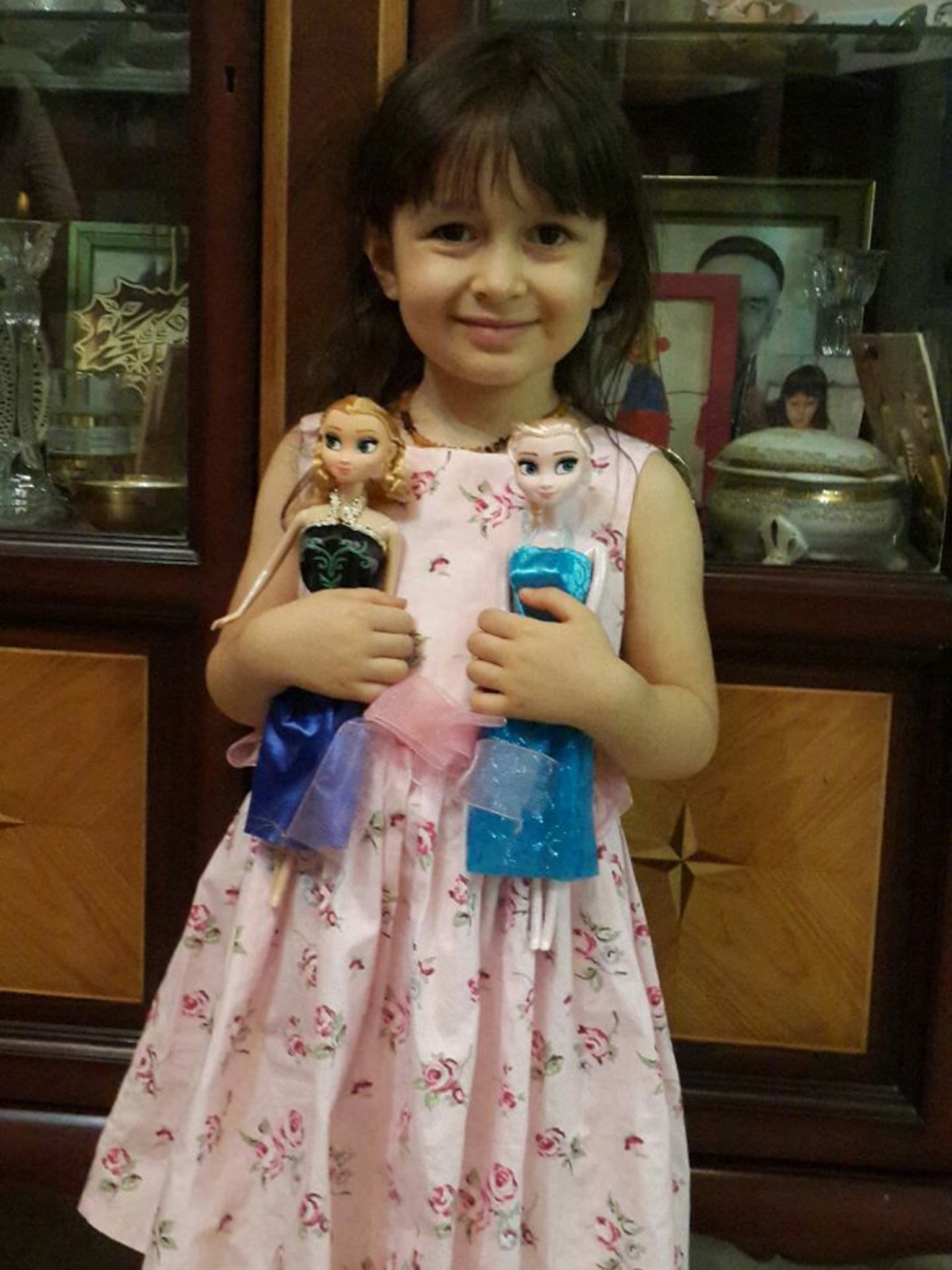Nazanin Zaghari-Ratcliffe could be home 'within a couple of weeks', reveals lawyer
The jailed charity worker’s husband tells The Independent she could be granted early release now fresh charges against her have been dropped: ‘For me, it’s now a question of when, not if’
Your support helps us to tell the story
From reproductive rights to climate change to Big Tech, The Independent is on the ground when the story is developing. Whether it's investigating the financials of Elon Musk's pro-Trump PAC or producing our latest documentary, 'The A Word', which shines a light on the American women fighting for reproductive rights, we know how important it is to parse out the facts from the messaging.
At such a critical moment in US history, we need reporters on the ground. Your donation allows us to keep sending journalists to speak to both sides of the story.
The Independent is trusted by Americans across the entire political spectrum. And unlike many other quality news outlets, we choose not to lock Americans out of our reporting and analysis with paywalls. We believe quality journalism should be available to everyone, paid for by those who can afford it.
Your support makes all the difference.British mother Nazanin Zaghari-Ratcliffe could be released from an Iranian jail “within a couple of weeks”, her lawyer has said.
The charity worker’s husband Richard Ratcliffe told The Independent that her lawyer has discovered that on the Iranian judiciary’s computer database her case has been moved from “closed” to “eligible for early release”.
The lawyer relayed the news to Ms Zaghari-Ratcliffe and her family in Iran on Wednesday afternoon.
Mr Ratcliffe said: “It’s not the same as a decision having been made to release, but it is a very clear positive sign towards that.
“The lawyer also said ‘I think they are just going to finalise the paperwork’.
“It doesn’t mean she is going to be out tomorrow. His [the lawyer’s] estimate was within a couple of weeks.”
Mr Ratcliffe added: “It is definitely positive. It’s hard to know how positive, but for me, it’s now a question of when not if.”
It marks a dramatic turnaround in the dual British-Iranian national’s case, one that seemed unimaginable little more than a month ago, when comments by Foreign Secretary Boris Johnson seemed to have done huge damage to her hopes of freedom.
Ms Zaghari-Ratcliffe had become eligible for early release on 23 November, the 600th day of her imprisonment, when she had served a third of a five-year sentence imposed in September 2016 for threatening Iranian national security.
Anticipating this, her lawyer had submitted an application to the Iranian prosecutor’s office in October, saying she should be considered for early release.
The application was supported by a letter from the head of Evin prison in Tehran which said she had been a good prisoner and emphasised her poor mental and physical health, as well as the effect of her imprisonment on her three-year-old daughter Gabriella.
But on 1 November Mr Johnson told MPs on the Foreign Affairs Committee (FAC) that Ms Zaghari-Ratcliffe had been “simply teaching people journalism” in Iran.
He was wrong. Ms Zaghari-Ratcliffe had been on holiday, enjoying the Iranian New Year celebration Nowruz with Gabriella and her Iranian family, and was a charity worker who has never taught journalists in her life.
But the Iranians seized on Mr Johnson’s gaffe and portrayed it as an accidental confession that Ms Zaghari-Ratcliffe was effectively a spy.
On the first Iranian working day after the Foreign Secretary’s appearance before the FAC, Ms Zaghari-Ratcliffe was hauled before a hardline judge to be told she faced a new charge of “spreading [hostile] propaganda”.
The new charges seemed to have ruined her chances of early release and threatened to land her with a fresh conviction that would have doubled her jail time.
Mr Johnson faced British MPs calling for his resignation, and Ms Zaghari-Ratcliffe was pushed to the verge of a nervous breakdown.

But Mr Ratcliffe told The Independent that Mr Johnson’s visit to Iran on 9-10 December, when he had “frank” talks about the charity worker’s case, had resulted in “incredibly encouraging developments”.
Foremost among them was the cancellation of Ms Zaghari-Ratcliffe’s court appearance on the new charges, which had been scheduled for December 10.
“Just the fact of Boris Johnson going to Iran,” says Mr Ratcliffe, “meant the trial disappeared.
“Nazanin was due to appear in court on the new charge on the Sunday [10 December], while the Foreign Secretary was still in Iran. The court appearance was postponed.
“Then on the Monday [11 December] the president of the court announced there was no trial and the foreign media had been wrong in saying there was one.”
The dropping of the charges seems to have enabled the Iranian judiciary to consider the early release question.

Ms Zaghari-Ratcliffe’s lawyer did not know when the judiciary marked her case as eligible for early release, but Mr Ratcliffe said: “Authorisation for that would have come after the Foreign Secretary’s visit.”
Mr Ratcliffe said other “signs of hope” that followed Mr Johnson’s visit included “the Foreign Ministry promising to go to the judiciary to look for humanitarian solutions that would allow Nazanin’s case to be ‘progressed’.”
“She has started getting extra visits and extra phone calls,” he added. “She has been able to telephone me every day since the Foreign Secretary’s visit. Propaganda against her on the main evening news disappeared.”
Mr Ratcliffe told The Independent that despite the trauma caused to his wife, the controversy over Mr Johnson’s remarks might ultimately have helped her cause.
“If you had asked me a few months ago what I wanted,” he said, “I would have said for Nazanin to be in the public eye, for the Government to be trying to bring her home and saying she is innocent.
“My greatest frustration was that Nazanin was not being discussed in Parliament, and MPs weren’t criticising the Foreign Secretary in great numbers.
“Now, that has all happened. The Foreign Secretary has had to engage, focus and get on a plane.”
Mr Ratcliffe, however, cautioned that it did not appear that all sections of Iranian society would welcome his wife’s early release.
“It feels like there are still people trying to block,” he said.
There had, he explained, been “a backlash” in some quarters against Mr Johnson’s visit.
Mr Ratcliffe said: “After the Foreign Secretary visited, Ayatollah Ahmad Alamolhoda, the Friday prayer leader for Masshad, Iran’s holiest city, called Boris Johnson a “liar”, a “clown” and a “womaniser”. He didn’t name her, but he basically said – in an address that was televised – that Nazanin was a “dirty spy” who shouldn’t be released.
“The hardline press has also been saying ‘we shouldn’t kow-tow to these foreigners who come and demand we release our prisoners when we are a sovereign country’.
“Some of the conservative sabre-rattling has even included upping the conspiracy to the point where Nazanin wasn’t just training journalists, she was recruiting government officials. That is pretty extraordinary considering that the truth is she came to Iran as a mum on holiday with her baby daughter.”
The move towards possible early release also follows unconfirmed reports that money will be paid to settle a legal dispute over £450m that Iran says Britain owes from a 1970s arms deal.
Britain is alleged to have taken money from the Shah up front, before deciding against delivering any more Chieftain tanks after he was deposed in the 1979 Iranian revolution – leading to legal wrangling that has lasted 38 years.
Mr Ratcliffe has previously claimed his wife was being used as a “bargaining chip”.
He made clear, however, that the Foreign Office insists that the arms deal and his wife’s case are not being linked, and therefore he has been told nothing about the current state of the legal dispute.
The only comment he could make, he said, was that “Improving relations between Iran and the UK can only help Nazanin”.
Mr Ratcliffe revealed that he had already bought Christmas presents for his wife, who has her 39th birthday on Boxing Day, and his daughter Gabriella, who has been living with her Iranian grandparents since Ms Zaghari-Ratcliffe was arrested in April 2016.
Mr Ratcliffe said he had decided against sending the presents to Iran because he had been hoping Ms Zaghari-Ratcliffe and Gabriella would be home by Christmas.
He refused, however, to speculate on whether the eligible for early release classification might mean a homecoming during the Christmas holiday period was going to happen.
“It is definitely a step forward,” he said, “But I am trying not to put a target on it [the release date].”
The signs that early release was now possible were also welcomed by Mr Ratcliffe’s constituency MP Tulip Siddiq.
The Labour MP for Hampstead and Kilburn said: “This news is a glimmer of light at the end of a dark tunnel for my constituents Richard, Nazanin and Gabriella.
“It has given Nazanin a real boost of positive energy, and now we wait impatiently to see what happens next.
“Although we do not want to celebrate prematurely, it would be the perfect Christmas gift to see Nazanin released and back with her family where she belongs.”
Also welcoming the news, Kathy Voss, of Amnesty International, said: “Being ‘eligible’ for release when you shouldn’t even be in prison in the first place is a bizarre thing to be celebrating, but we have to welcome this as a sign that Nazanin’s ordeal may be coming to an end.”
Ms Voss warned, however: “There have already been many ups and downs in Nazanin’s case, so we have to be cautious about any premature celebrations.
“As far as we’re concerned, this won’t end until Nazanin and Gabriella are actually on a plane and heading back to London.”
The Iranian government has always maintained that Ms Zaghari-Ratcliffe was detained due to illegal acts and received a fair trial and fair treatment throughout.

Join our commenting forum
Join thought-provoking conversations, follow other Independent readers and see their replies
Comments